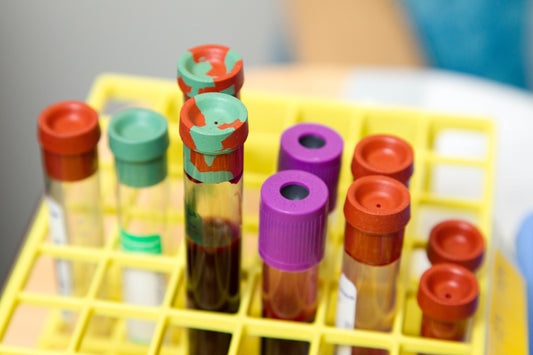It's kind of insulting the lack of education us now 30-somethings got about our body and hormones while we were teens. Thankfully social media has filled that gap quite nicely and made information about these once taboo topics far more accessible.
These are the five things that would have been helpful to know at 18!
1. What a Normal Cycle Looks Like:
One of the first things every woman should be aware of is that a textbook 28-day menstrual cycle is not the norm for everyone. In fact, menstrual cycles can vary significantly among individuals. It's perfectly normal for cycles to fall within the range of 26 to 35 days. Knowing this helps avoid unnecessary panic and stress if your cycle doesn't align with the classic 28-day model. However, if your cycle consistently falls outside this range, it's essential to consult a healthcare professional to rule out any underlying issues.
2. Sleep Is a Skill Needed for Happy Hormones:
Sleep plays a fundamental role in maintaining hormonal balance and overall well-being. Understanding how to wind down and prepare for a good night's sleep is a skill that can significantly impact your physical and mental health. Prioritizing restful sleep can aid regular ovulation and contribute to the release of 'happy hormones' like serotonin and dopamine, which are essential for emotional stability and overall happiness.
3. Sex Hormones Impact Your Mental Health:
The intricate dance of sex hormones in a woman's body can affect her mood both positively and negatively. Recognizing the influence of hormones on your mental health is crucial. For instance, understanding how hormonal changes during your menstrual cycle might affect your mood can help you better navigate emotional fluctuations. Understanding that you may feel less energised in the luteal phase, or more energised pre-ovulation is helpful information that can help you plan your social calendar and commitments.
4. The Pill Isn't a Cure-All But Can Be Helpful:
While oral contraceptives, often referred to as "the pill," are a valuable tool for family planning and managing some conditions, they are not a one-size-fits-all solution for every issue related to reproductive health. The pill can help manage certain conditions in the short term, such as painful periods, acne or mood swings, but it is not a cure for underlying conditions like polycystic ovary syndrome (PCOS) or endometriosis. These issues require a combination of treatments tailored to your specific needs and goals. It's important to note that while the pill can be very helpful, it is also linked to depression and anxiety, likely due to the fact it inhibits ovulation and causes the depletion of folate, vitamins B6, B12, vitamin C and E and magnesium, selenium and zinc.
5. It's Okay to Have a Lower Sex Drive Than Your Partner:
Sexual desire is a highly individual and evolving aspect of a woman's life. It's important to understand that it can come in various forms and may change over time due to factors like age, stress, and changes in the relationship. It's perfectly normal for partners to have different levels of sexual desire, and this doesn't necessarily indicate a problem in the relationship. More often than not a sluggish sex drive is driven by a lack of rest and connection rather than a hormonal issue.
These are just a few of the things I think women should know about their bodies, of course, there is plenty more that I wish to share with you! For more insights into some of the horrible symptoms women put up with like: painful, clotty and long periods, acne, low mood, weight gain, anxiety, sore boobs, a non-existent sex drive, hot flushes, and night sweats - check out my Guide to Women's Hormones - Free now!




